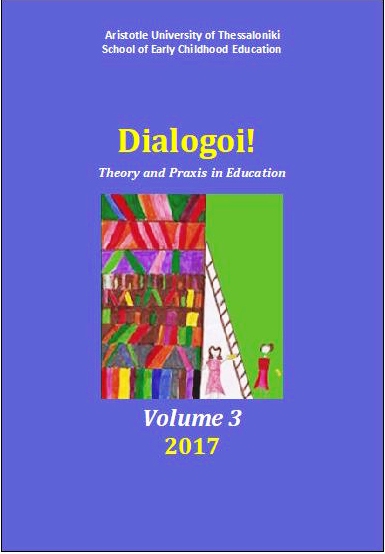Creativity and play in early childhood education: a socio-cultural perspective

Abstract
Creativity has mostly been associated with a cognitive capacity linked with specific qualities of thought such as the production of new ideas, originality, imagination and flexibility during problem solving. This study highlights creativity within a socio-cultural theoretical perspective as displayed during children’s free play in early childhood settings. By employing a socio-cultural perspective, this paper questions: a) the ways in which children may be creative during free-play activities and b) the ways in which teachers’ values, organization of educational practice and classroom rules intervene in the opportunities and ways in which children express creativity during play. Ethnographic observations and interviews with the children and early childhood teachers took place in two early childhood settings, characterized by different teachers’ priorities, time and space organization of free play. Creativity and play are linked by identifying children’s meaningful and intended interactions to change the context of play (time, space, rules, scenaria) through either the adaptation of adult values and concerns or the construction of new meanings, forms and activities that add to the existing culture. The paper concludes with tentative proposals for teachers on how to recognize the potential of children’s creativity within play and support related opportunities.
Article Details
- How to Cite
-
Avgitidou, S. (2016). Creativity and play in early childhood education: a socio-cultural perspective. Dialogoi! Theory and Praxis in Education, 2, 9–19. https://doi.org/10.12681/dial.10570
- Issue
- Vol. 2 (2016)
- Section
- Special Theme

This work is licensed under a Creative Commons Attribution-NonCommercial-ShareAlike 4.0 International License.
Authors who publish with this journal agree to the following terms:
- Authors retain copyright and grant the journal right of first publication with the work simultaneously licensed under a Creative Commons Attribution Non-Commercial License that allows others to share the work with an acknowledgement of the work's authorship and initial publication in this journal.
- Authors are able to enter into separate, additional contractual arrangements for the non-exclusive distribution of the journal's published version of the work (e.g. post it to an institutional repository or publish it in a book), with an acknowledgement of its initial publication in this journal.
- Authors are permitted and encouraged to post their work online (preferably in institutional repositories or on their website) prior to and during the submission process, as it can lead to productive exchanges, as well as earlier and greater citation of published work (See The Effect of Open Access).



